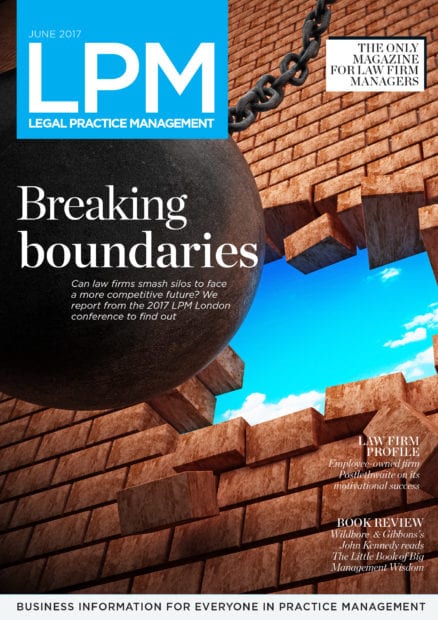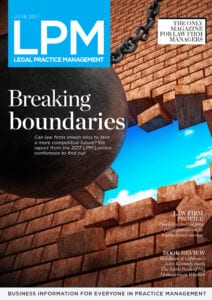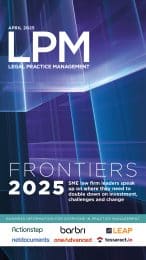

June 2017
Breaking boundaries
Can law firms smash silos to face a more competitive future?
FEATURES

If SME firms want to thrive in an ever-changing world, then they need to change with it. Patrick Wingrove reports from the 2017 LPM London conference.

Richard Higgs, sales director at Tikit, delves into the benefits and considerations of setting up a flexible working structure

Richard Higgs and Adrian Jones at Tikit speak to LPM about seizing a competitive edge with all-encompassing flexibility

The management team
at Postlethwaite speaks to Patrick Wingrove about how their employee ownership model has been good
for business


 GET YOUR COPY NOW
GET YOUR COPY NOW








